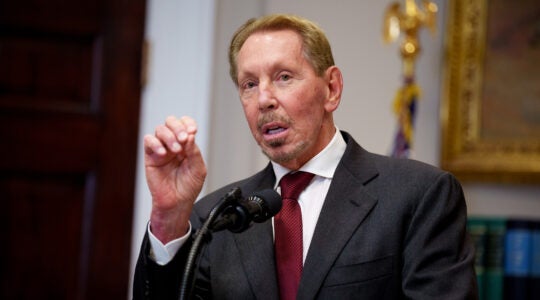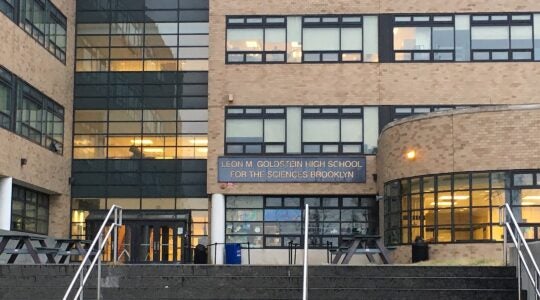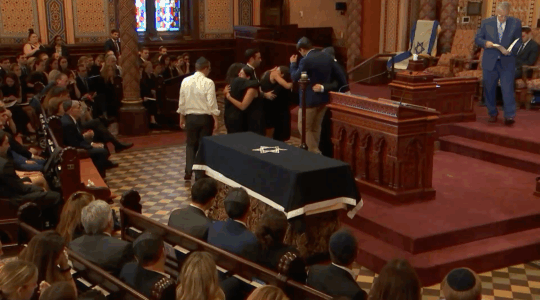FRANKFURT, July 2 (JTA) — A wave of mysterious church burnings has swept across northern Germany in the past month. In the most recent attack last week, the culprits set a room in the community center of a church in the town of Lubeck on fire. They also scrawled three swastikas on a wall of the church complex as well as graffiti threatening the church’s pastor. Police estimated tens of thousands of dollars in property damage. The attack on the St. Augustinus Church in Lubeck was the sixth incident in northern Germany since late May. Last week, unknown culprits smeared swastikas and graffiti on the office door of the well-known novelist Gunther Grass, who lives in Lubeck. The synagogue in Lubeck also has been hit by two arson attacks, the only attacks against a synagogue in Germany since unification. The targeted church is currently offering asylum to an Algerian family the German government has threatened to deport. The church asylum movement has gained momentum over the past four years, since Germany tightened political asylum regulations, making it easier for the government to deport asylum-seekers. One of the reasons politicians cited for changing the asylum law was to reduce the number of refugees coming into the country in order to defuse the wave of xenophobia and right-wing extremism that surged in Germany after unification. Hundreds of residents of Lubeck recently staged protest marches to demonstrate against intolerance and right-wing violence. So far, police have arrested suspects in two of the cases. Investigators say they are not aware of a connection between the suspects and organized far right-wing groups, but have not ruled out political motivations in the attacks. A fire at a refugee shelter in Lubeck last year that killed 10 people also remains unsolved. A court there recently cleared a former resident of the home of charges that he set the fire, ruling there was no convincing evidence for the conviction of the Lebanese-born suspect. The trial attracted widespread attention because of charges by the defense that police systematically had overlooked or destroyed evidence that could implicate four young men with sympathies for the right-wing extremists.
JTA has documented Jewish history in real-time for over a century. Keep our journalism strong by joining us in supporting independent, award-winning reporting.





